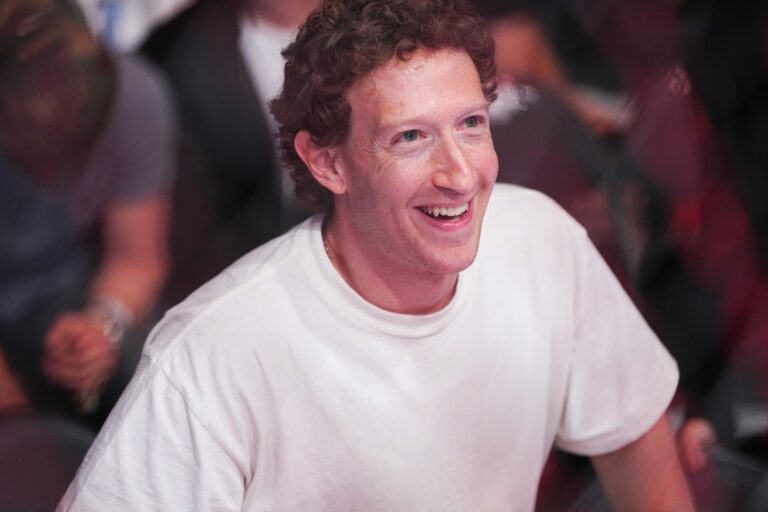Content creators are busy people. Most spend more than 20 hours per week Users are creating new content for their respective sites on the web. That doesn’t leave much time to engage the audience. But Mark Zuckerberg, CEO of Meta, thinks AI could solve this problem.
In a interview With internet personality Rowan Cheung, Zuckerberg laid out his vision of a future in which creators will have their own bots, of sorts, that capture their personalities and “business goals.” Creators will hand off some of their community outreach work to these bots to free up time for other, arguably more important, tasks, Zuckerberg said.
“I think there’s going to be a huge shift in the social media world where every creator will be able to pull all of their information from social media and train these systems to reflect their values and their goals and what they’re trying to do, and then people will be able to interact with that,” Zuckerberg said. “It’ll almost be like an artistic artifact that creators will create that people will be able to interact with in different ways.”
Zuckerberg’s thinking is common in many techno-optimist circles: AI is an intrinsic good because it promises to vastly increase the impact that a single person—or organization—can have. (Google has also launched AI-based tools (for creators.) But when productivity comes at the expense of the personal touch, would creators, whose authenticity audiences value, really be the ones to embrace generative AI?
Not to help Zuckerberg, Meta failed to really deliver a compelling sales pitch.
When Meta started to deploy AI-powered robots as part of its broader Meta AI push earlier this year, it didn’t take long for bots to fall prey to the many pitfalls of today’s generative AI technology, particularly hallucinationsThe Associated Press observed a bot inserting itself into a conversation in a Facebook group for Manhattan mothers and claiming to have a child in the New York school district. Another bot offered to give away a nonexistent camera and air conditioner on a freebie forum near Boston.
To be fair, Meta’s AI is getting better, at least that’s what the company claims. The latest version, the Llama 3.1 model familywhich will power a number of features Of the tech giant’s platforms, Meta is the most sophisticated yet, judging by performance tests. But hallucinations—and general planning and reasoning errors—remain an unsolved problem in generative AI, and Meta offers no breakthroughs in research on the subject.
It’s hard to imagine creators trusting flawed AI bots to interact with their fans. In the interview, Zuckerberg acknowledges that Meta needs to “alleviate some of the concerns” about its use of generative AI and earn users’ trust over the long term. This is especially true given that some of Meta’s AI training practices are actively keep creators away from its platforms.


